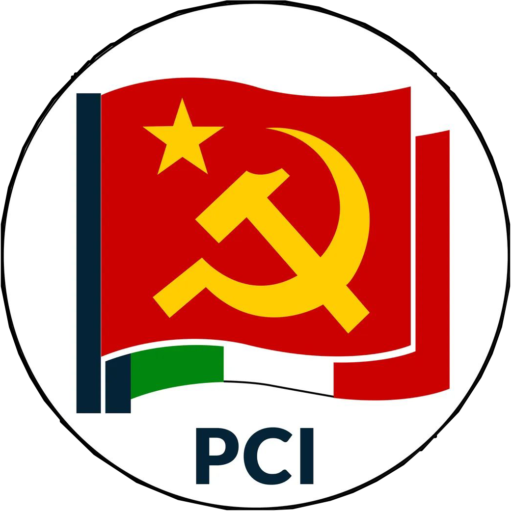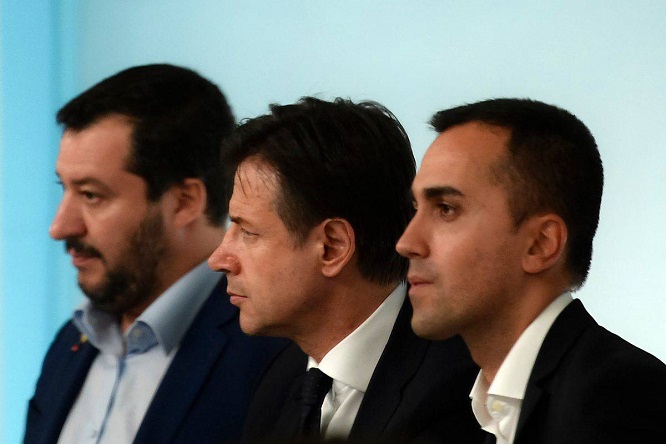Note from the National Secretariat of the PCI
The crisis in the Conte government is a fact, and it may well be that it will resign in Parliament or be challenged as early as the beginning of next week.
There are many hypotheses that run after each other on what the President of the Republic, who is in charge of the choices on the matter, could decide later.
Among the most accredited there is a transitional government or the permanence of the current one until the elections, according to many, in this case, already in October.
The fact that the Conte government has come to an end after 14 months is good news for the PCI, and the best choice is to give the voters the floor as soon as possible.
The genesis of the Conte government is well known: to the impasse following the outcome of the vote in March 2018, he responded with an unprecedented and for the most part unpredictable “Government Contract” between the League and the Five Star Movement.
Two very different political forces: one openly rightist, with marked racist impulses and with an evident nationalist propensity more than sovranist, the other openly neither right-wing, center nor left-wing, self-defined also as inter-classist and post-ideological.
Two forces united by a marked populist approach, which in the name of doing has ended up creating serious questions about the given democratic structures.
It is a fact that over time, particularly following the outcome of the vote for the renewal of the European Parliament, the policies of the Count government have become increasingly “leghist traction”, markedly right-wing: emblematic in this regard are the guidelines on immigration, finance, the economy; a political approach that, with the issue of differentiated autonomy (ie the possibility for single regions to decide on national issues on their territory), even goes so far as to call into question the unity of the state itself.
It is also a fact that the 5-Star Movement ended up chasing the League and losing the alleged rupture function of which, wrongly, many had credited it.
If the No TAP and the No TAV affair say so much about it, emblematic are, finally, the serious decision of the M5S to vote in favor of the candidates for the two top roles of the European Union and the joint approval of the security decree that, in addition to the immigration issue, has highlighted a worrying authoritarian twist in the conception and management of public order.
More generally, the League and the M5S have demonstrated in practice the gap between what was promised in the election campaign and what was achieved in reality, including in relation to welfare and employment, whose measures have turned out to be little more than “warm drapes”.
A gap between saying and doing that has also manifested itself in relation to the contents of the so-called “Government Contract”.
The search for responsibility about the failure of the yellow and green government experience is a daily issue, but this does not interest us, it cannot interest us.
What counts is the overcoming of a very bad page in the history of the Republic, a page in the name of the search for consensus at any cost, of saying yes to everything and the opposite of everything, a page that has highlighted the absence of a project for the country able to truly respond to the needs of citizens, who continue to measure themselves against the effects of the capitalist crisis, of the policies chosen to govern it, whose responsibility is clearly to be found in the governments of the centre-right and centre-left that have followed one another at the head of the country, but also in the League and Five Star Movement.
The outcome of the current government crisis (according to many, a strong affirmation of the right) cannot but represent a strong element of concern, especially with regard to the forthcoming attack on the Constitution (with differentiated autonomy), the flat tax and a presidential reform of the institutions. A scenario that outlines a “maximum” and authoritarian State in the management of public life and “minimum” in the intervention in the economic life of the Country.
More than a question is raised by the alternative on the ground, which for many is represented by the Democratic Party, which is going through an undoubted crisis, whose full acceptance of liberalism as a political perspective has codetermined the current situation.
The profoundly critical condition of the phenomenon represented by the Five Star Movement, by now a sort of meteor on the Italian political scene, is certain.
We, the Communists, are and will be on the ground for an alternative to the policies in place, to the policies that are now being proposed, as they do not represent the answer to the needs of the working people, the masses, the country.
What is needed is to truly turn the page, that is, a project of real change, political and social, for Italy, which passes first of all through the revival of the role of the State in finance and the economy, the break with the centrality of the market, with the Euro-Atlantic subjection of Italy, with the acquiescence to the diktats of the European Union, with the prevailing liberal culture, to which the facts show that even the Conte government, the forces that gave life to it, have largely subjected themselves.
The appeal “For communist unity within a class left-wing front” launched by the PCI in recent days goes in this direction.
In the coming weeks, the party will therefore be committed to broadening this unitary process, to promoting initiatives, both general and particular, to strengthen it, in the conviction that this is functional to affirm the necessary responses to the current crisis.
An alternative is possible as well as necessary.
Turning the page is possible, we must!
Rome, 9 August 2019


